I went down the rabbit hole of brain training apps—tested them, read way too many user reviews, watched the hype videos, and even got found a few favorites for me. So you should get prepared, because I’m here to deliver.
If you’ve ever downloaded a brain training app hoping to become the next Einstein—or at least remember where you left your keys—you’re not alone. In fact, the idea that an app can sharpen your mind while you sit in your pajamas eating leftover pizza is… honestly, kind of magical.
I couldn’t help but wonder: do these apps actually work? And even if they don’t turn us into certified geniuses, are they still worth the screen time?
I went down the rabbit hole of brain training apps—tested them, read way too many user reviews, watched the hype videos, and even got into a debate with some random guy on Reddit. So you should get prepared, because I’m here to deliver.
The Appeal: Why Everyone Thinks They Need Brain Training
First of all, as a fellow brain rotten GenZ I do have to admit that we live in a world where attention spans are shorter than TikTok trends, memory lapses are blamed on “Zoom fatigue,” and brain fog has become a way of life. So yes, the pitch of brain training apps makes sense. They promise sharper focus, better memory, faster problem-solving, and even stress reduction. Basically, they say they’ll help you think clearer, faster, and smarter—all while playing colorful little games.
Who wouldn’t want that?
Also, let’s be real: there’s a certain dopamine hit you get when a brain app tells you that you’re performing better than 93% of users in your age group. It’s like academic validation without the student loans.
But is there science behind it, or are we all just glorified lab rats tapping on our screens?
Okay, But What Is Brain Training, Really?
Think of brain training like going to the gym—but for your mind. You’re not lifting weights or doing squats (thankfully), but you’re flexing cognitive muscles: memory, attention, logic, reaction time, language skills, etc.
The basic idea is that by practicing certain mental exercises, your brain gets stronger, more efficient, and quicker at certain tasks. Some call it neuroplasticity, which is just a fancy way of saying your brain is adaptable. And yes, that part is backed by science. Your brain can change, grow, and rewire itself. Cool, right?
Where things get fuzzy is how much an app can help with that—and whether playing a game that tests memory or speed translates into better performance in the real world. Spoiler alert: sometimes it does, sometimes it doesn’t. But we’ll get to that.
The Best Brain Training Apps (According to People Who Use Their Brains)
1. Lumosity
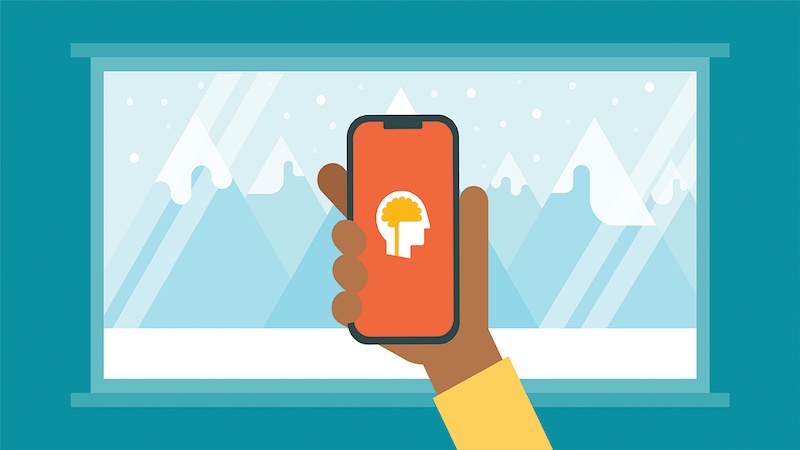
For: General cognitive training with a legit research background.
Ah, the OG of brain training apps. Lumosity has been around for over a decade and has that polished, almost clinical vibe. It was developed by neuroscientists and backed by a fair amount of research. The app focuses on five core areas: memory, attention, flexibility, speed, and problem-solving.
You get daily “workouts” that last about 10 minutes—perfect for your coffee break or while pretending to listen on a Zoom call (no judgment). There’s also a decent personalization aspect: the more you play, the more the app adjusts to challenge you.
Do people love it?
Yes, mostly. One of my friends swears by it. Others say it’s repetitive. But it’s still one of the most downloaded and trusted apps in the brain fitness game.
Price: Free with limited features, or $11.99/month for premium.
2. Elevate
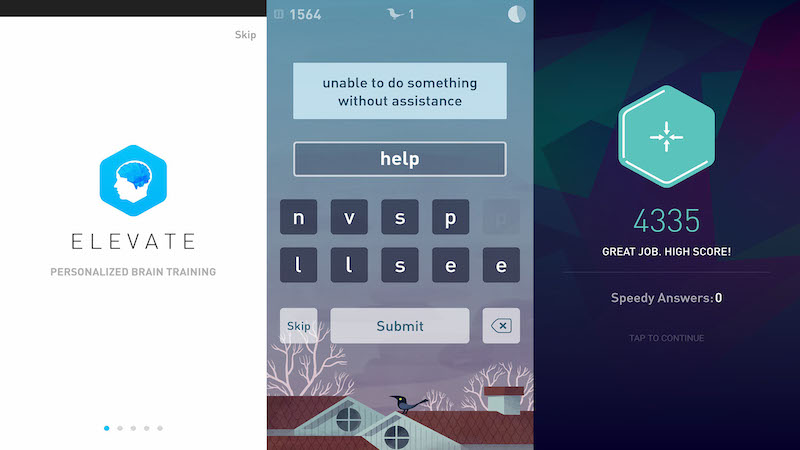
For: Polishing your language and math skills like a boss.
Elevate is like that friend who shows up to brunch with a crossword puzzle and a latte in hand. It focuses less on abstract brain games and more on real-world skills—reading comprehension, grammar, writing, math, and listening.
It’s sleek, motivating, and weirdly addictive. You’ll find yourself actually looking forward to grammar drills, which sounds wrong but is somehow true.
What makes it stand out?
It feels more practical. Instead of just giving you a high score, it teaches you how to apply that sharp brain of yours in everyday situations.
Price: Free with limited features; $4.99/month or $39.99/year for pro.
3. Peak
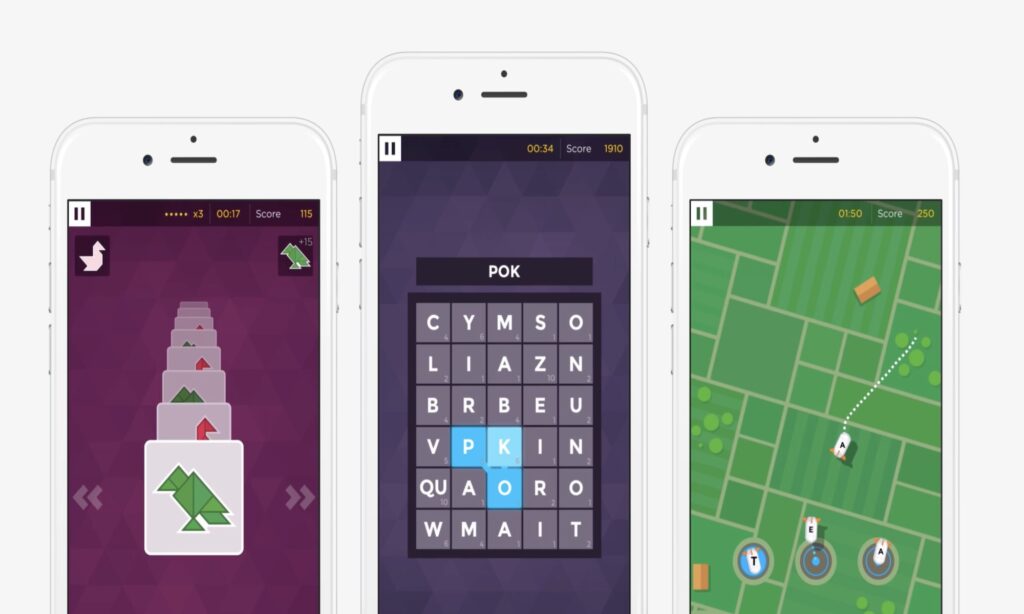
For: Gamified brain workouts that don’t feel like work.
Honestly, Peak feels like the cool cousin of Lumosity. It has a colorful interface, over 45 games, and personalized training programs. It’s fun without feeling childish.
They also offer a “Coach” feature that sets up custom workouts based on what you want to improve. Whether it’s memory, problem-solving, focus, or even emotional control (because yelling at your coworkers isn’t always the vibe), Peak’s got you.
Good to know: The free version is pretty limited so if you are not willing to spend some, maybe this app is not the match for you. However, the paid version gives you access to all games and progress tracking.
Price: $4.99/month or $34.99/year.
4. Mensa Brain Training
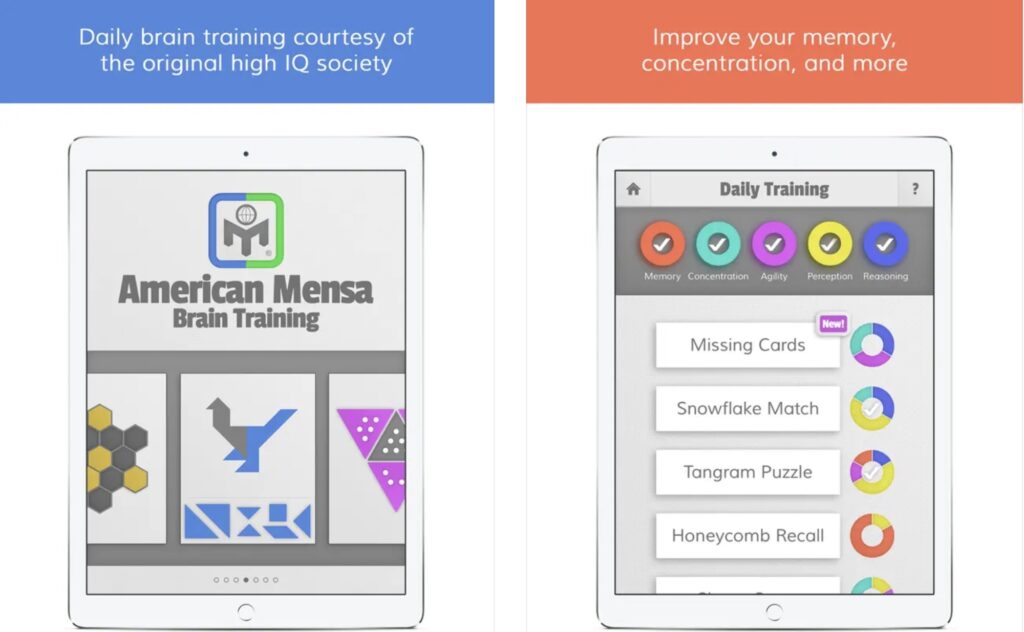
For: People who want to brag about their brainpower.
Yes, that Mensa—the high-IQ society. This app has a no-nonsense, clean design and is filled with puzzles that get harder over time. The focus is mostly on logic and problem-solving.
Truth being tonsils, this might be my least favorite from the list, to me it more feels like an IQ test game. It also feels a bit more serious, a bit less flashy. It can be perfect for people who’d rather do a Sudoku than watch reality TV.
Warning: It can get frustrating if you’re not into number puzzles or don’t enjoy being humbled by a grid.
Price: $4.99/month or $29.99/year.
5. CogniFit
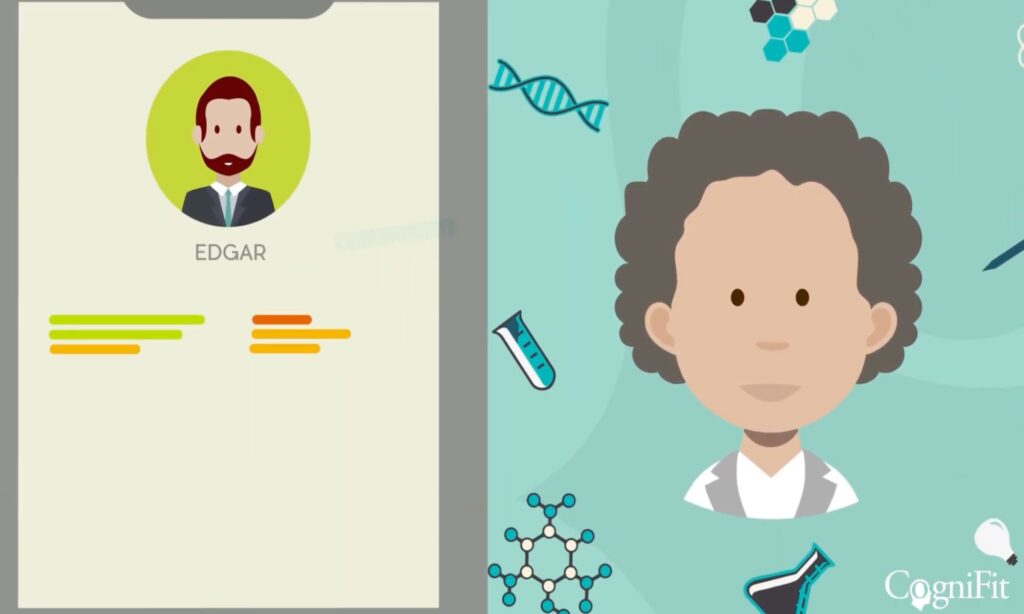
For: Those who want data, research, and a serious approach.
CogniFit is less “game night” and more “mental bootcamp.” It’s been used in clinical and academic settings, and it takes the science angle seriously. You get assessments, personalized training, and in-depth progress tracking.
It’s especially popular with students, seniors, and people in recovery from brain injuries. That said, it’s still fun—and you’ll get a real sense of whether you’re improving.
Price: $19.99/month or $189.99/year (too much if you ask me).
6. NeuroNation
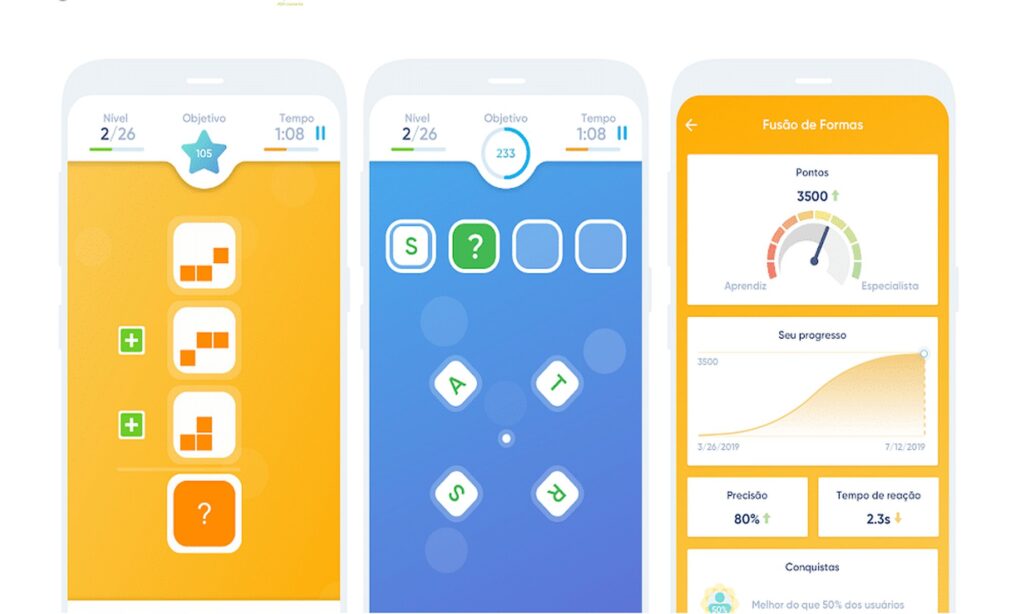
For: Brain training with a European flair and actual science receipts.
NeuroNation sounds like the name of a futuristic EDM band, but don’t let that throw you off. This Berlin-based app has over 20 million users and is backed by the German Federal Ministry of Health. (I see they’re not playing around.)
It focuses on improving memory, attention, logic, and speed with personalized training plans that adapt as you go. Plus, you get progress stats that are satisfyingly nerdy—charts, numbers, all the good stuff.
Unique perk? It actually has exercises designed for people with cognitive disorders, ADHD, and stress-related focus issues. Respect.
Price: Free to try, Premium is $4–$9/month depending on your plan.
7. MindPal
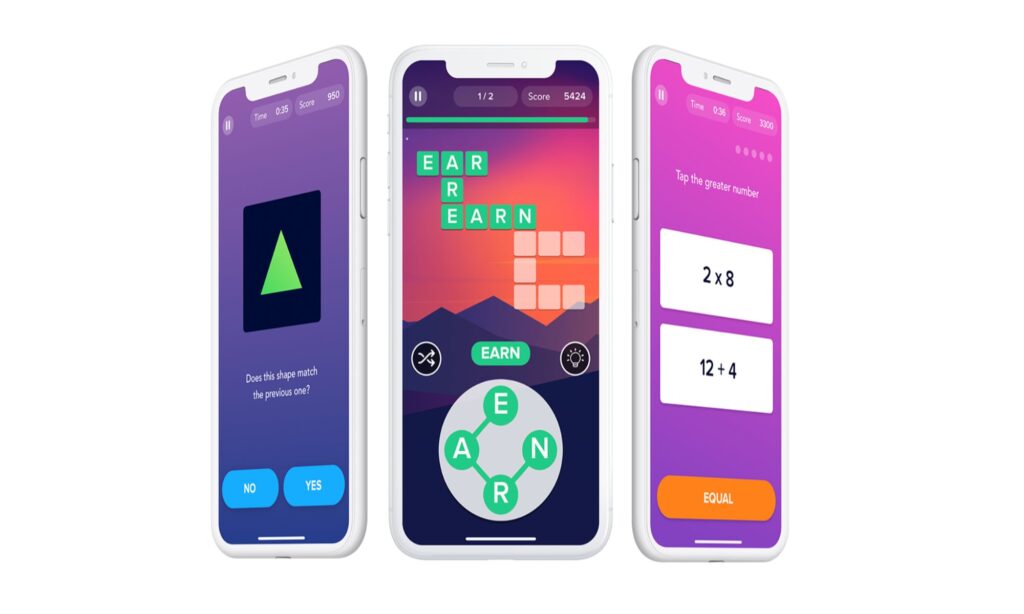
For: Quick hits of cognitive training that feel like mental espresso shots.
MindPal is the brain app equivalent of a crisp iced coffee: refreshing, quick, and exactly what you need when you’re dragging at 3 PM. It focuses on short, sharp exercises that hit core areas like language, focus, and processing speed.
It doesn’t overload you with features, which is actually a plus. The UI here looks pretty cool, the games are fast, and the whole experience feels modern—not like you’re stuck doing worksheets in a digital classroom.
Best for: Busy folks who want something low-maintenance but still effective.
Price: Free with optional upgrades; Premium around $6.99/month.
8. Impulse: Brain Training
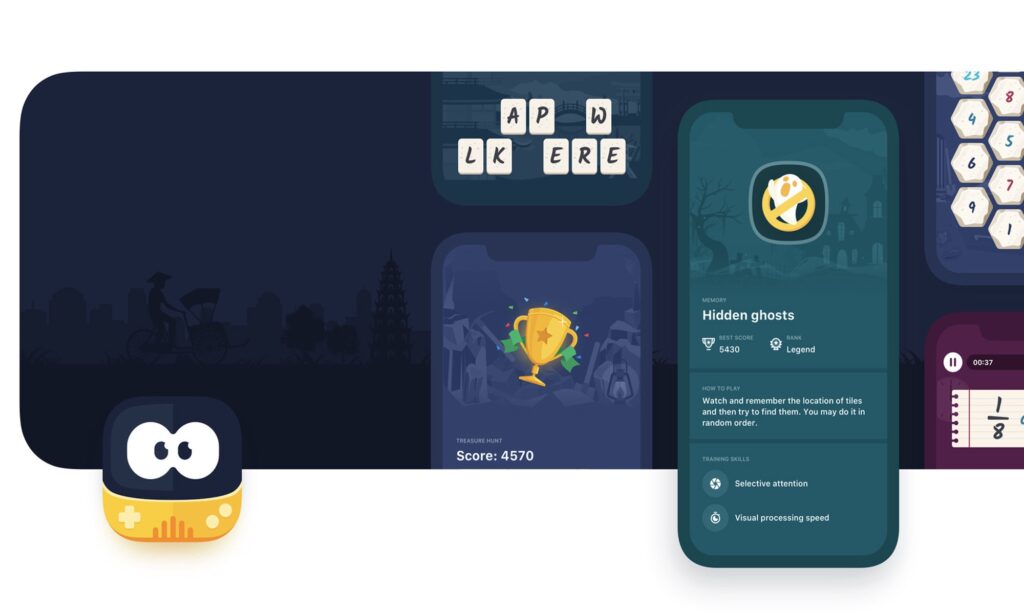
For: Pretty visuals, snappy games, and a dopamine fix.
Impulse is that app you download for the look and stay for the games. It’s heavy on design—very colorful, very clean—and serves up hundreds of mini-games that target attention, logic, mental math, creativity, and more.
The app also includes brain “tests” that rate your cognitive speed, focus, flexibility, and even personality traits. A little horoscope, a little Harvard. It’s weirdly satisfying.
Heads up: The free version is limited, and the upsell is strong. But if you like flashy, bite-sized learning, you’ll probably vibe with it.
Price: Around $7.99/month after the free trial.
9. Smarter: Brain Training & Games
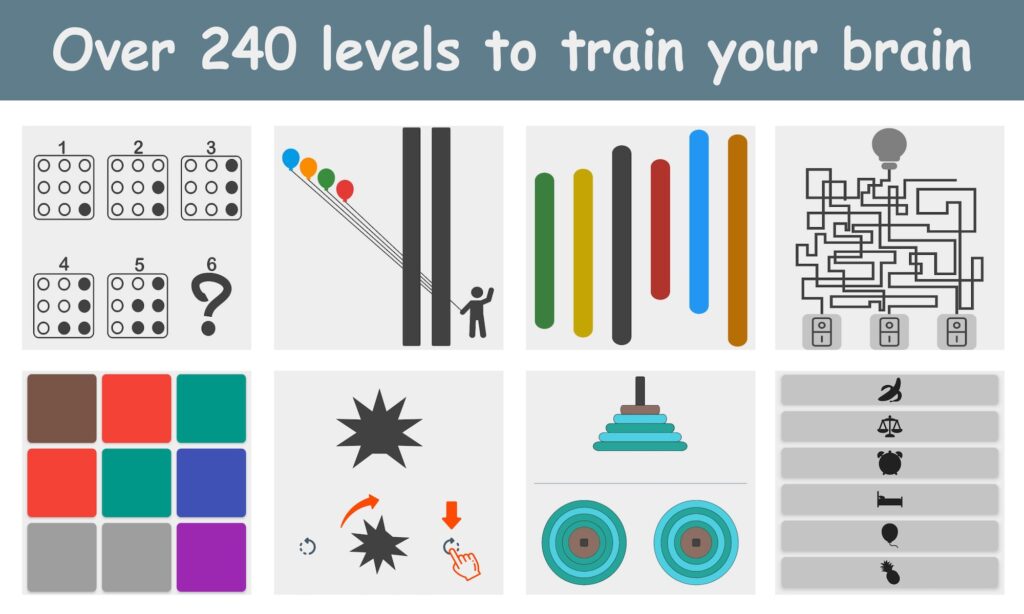
For: A balance of fun and function, with chill vibes.
Smarter is relatively new but already gaining traction for keeping things fun without going full nerd-mode. While it’s been getting some attention, I’m not completely sold. It looks nice and the vibe is definitely more chill than some of the other apps—think brain games with a touch of mindfulness, without diving headfirst into full-blown nerd territory.
The games are clean and simple, and they do try to balance cognitive training with emotional stuff like focus and creativity. Cool in theory. You’ve got your usual categories—memory, attention, mindfulness, all that. But I don’t know… something about it just feels a little too smoothed-over, like it’s trying to be the wellness app and the smart app and kind of ends up stuck in between.
If you want something light and easy that doesn’t feel too intense, it might be your thing. Personally? Meh. Feels like it’s still figuring itself out, but hey, there’s room for everybody.
Price: Free to start, around $5.99/month for full access.
But Do Brain Training Apps Actually Work?
Here’s the million-dollar question: do these apps make you smarter?
Let’s unpack that.
Memory and focus? Yes, there’s evidence that training specific skills through repeated practice can lead to improvement within the app—and sometimes beyond it. A study published in Nature showed some limited real-world benefits. Another in Psychological Science in the Public Interest said, “not so fast.” Results vary wildly.
Transferability? This is where it gets tricky. If you get really good at a game in Lumosity, it doesn’t mean you’ll suddenly crush your taxes or remember your passwords without sticky notes. That’s called “far transfer,” and it’s the holy grail of brain training. Some apps claim it, but real proof is… thin.
Motivation and mood? This is where most brain training apps shine. Even if they don’t make you smarter, they do make you feel engaged, productive, and more mentally aware. And that counts for something.
Bottom line? They’re not magic, but they’re not a scam either. Think of them as brain supplements—not miracle pills.
The Good, The Meh, and The Ugly
The Good:
- ✅ They help build daily mental habits.
- ✅ They make self-improvement fun.
- ✅ Some users report better focus, sharper memory, and less mental fatigue.
- ✅ The structured challenge feels motivating.
The Meh:
- ❌ Real-world impact can be small or hard to measure.
- ❌ Some games get repetitive fast.
- ❌ Premium versions are often locked behind pricey subscriptions.
The Ugly:
- 🚨 If you’re using them as a substitute for real mental health care, therapy, or medical advice… please don’t.
- 🚨 There’s a risk of becoming too reliant on “scores” to validate your intelligence.
- 🚨 Not all apps are created equal. Some are flashy junk.
Who Should Use Brain Training Apps?
Here’s the deal—brain training apps are perfect for you if:
- You’re trying to feel sharper or more focused.
- You enjoy puzzle games but want something with structure.
- You’re trying to reduce screen time spent on doomscrolling (bless you for that).
- You want to challenge yourself in a way that doesn’t involve yet another streaming binge.
They’re not for you if:
- You expect instant genius levels.
- You hate repetition.
- You think “fun” and “grammar drills” should never be in the same sentence.
Final Thoughts: Are Brain Training Apps Worth It?
If you’re looking for a mental six-pack, brain training apps aren’t the end-all. But they are a nice little gym for your mind—and that’s worth something. They might not make you the next Nobel laureate, but they will make you feel more in control, more self-aware, and maybe just a little bit more clever. And isn’t that the kind of glow-up we could all use?
You don’t need to download all of them. Try one. Stick with it for a couple of weeks. See how you feel. No pressure, just keep that brain moving—and remember: intelligence isn’t just about solving puzzles. It’s also about knowing when to take a break, go outside, and enjoy life offline.

